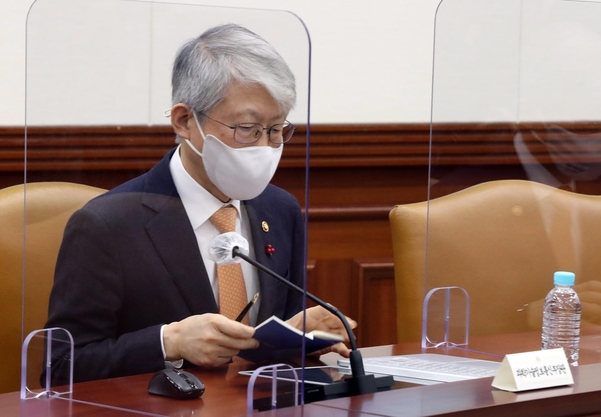Input 2020.12.24 12:00
Presenting 30 tasks to promote the use of artificial intelligence and minimize side effects
Promote long-term tasks to establish artificial intelligence legal personality and responsibility system
Algorithm transparency and fairness secured, and ethics established to establish a reliable foundation
Promote reform of employment/labor and inclusion/welfare laws to respond to changes in the social environment
In the future, artificial intelligence (AI), which performs human intellectual abilities instead, is expected to have copyrights for creations performed by itself. By next year, the Basic Administrative Act was enacted to prepare the legal basis for automated administrative actions using artificial intelligence, etc., and procedures for redressing rights in case of errors are also prepared.
On the 24th, the Ministry of Science, ICT, and ICT and the Office of State Affairs Coordination confirmed and announced a roadmap for artificial intelligence law, system, and regulation improvement at a coordination meeting to examine issues of state affairs presided over by the Prime Minister. It is to lay the legal basis for preparing for the era of artificial intelligence.

First, by next year, we will discuss whether to recognize intellectual property rights for investors and developers of artificial intelligence creations, and then review the revision of the Civil and Criminal Laws in 2023. The discussion of legal system reform related to artificial intelligence legal system will also be promoted as a long-term task.
It is explained that it is essential to discuss whether or not the subject of rights is recognized when artificial intelligence creates civil and criminal matters or creations in case artificial intelligence performs part of human intellectual abilities or enables autonomous judgment.
In addition, it plans to reinforce related school education along with research and development of ethics education curriculum by preparing artificial intelligence ethics standards.

In addition, the’Data Basic Act’ is enacted to clarify the concept and participants of data and regulate government responsibilities. Promote legislation to utilize data for each industry. Amendment of the Personal Information Protection Act to introduce the right to request explanations and objections for decision-making relying on automated personal information processing, and the revision of the Copyright Act to enable massive data analysis and artificial intelligence learning.
The company plans to first induce a system that evaluates and manages algorithm biases and errors autonomously so that the company’s algorithm development is not contracted. Algorithms have a significant influence on decision-making across politics, society, economy, and culture. The government explains that it is necessary to secure the transparency and fairness of algorithms to lay the foundation for trust in the use of artificial intelligence technology.
Taking advantage of Korea’s experience in establishing the world’s first AI medical device licensing standards, it will establish international standards for artificial intelligence medical devices, and expand the scope of health insurance coverage through re-evaluation of AI medical technology effectiveness by 2023.
In the autonomous vehicle sector, we plan to implement individual tasks step by step according to the existing roadmap, while in the autonomous vehicle sector, we plan to establish a regulatory innovation roadmap.
The government aims to establish a plan to prepare improvement plans for each project, such as drawing specific legislation and amendments to the 30 tasks discovered in this roadmap.
An official from the Ministry of Science and ICT said, “Next year, we will form the second artificial intelligence legislative organization to revise and supplement the roadmap and continuously discover new tasks.” “In the specific legislative process, it is necessary to collect public opinions, make public opinions, or adjust interests The task is to draw social consensus through strengthening cooperation with related ministries.”
